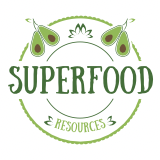What are the top 10 superfoods for boosting immunity?
Introduction
Welcome! If you’re eager to bolster your body’s defenses and boost your health, you’ve come to the right place. Superfoods are nature’s powerhouse ingredients packed with vitamins, minerals, antioxidants, and other nutrients that can help strengthen your immune system. Incorporating these foods into your diet can be a delicious and natural way to fight off illnesses. Let’s explore the top 10 superfoods that are not only nutrient-dense but also widely acclaimed for their immune-boosting properties.
Understanding Superfoods
 Image courtesy: Pexels
Image courtesy: Pexels
Definition and characteristics
Superfoods are foods that offer maximum nutritional benefits for minimal calories. They are packed with vitamins, minerals, and antioxidants. These are natural foods, not processed, ensuring that they retain their nutritional integrity. The characteristics that make superfoods particularly standout include their high vitamin density, richness in minerals, and an abundance of antioxidants. These foods are not only superior sources of essential nutrients but are also believed to help ward off diseases and improve one’s physical and emotional health.
Benefits for overall health
Incorporating superfoods into your diet can provide numerous health benefits that contribute to a longer and healthier life. These benefits include enhanced immunity, improved heart health, and reduced signs of aging. They can also augment weight loss, regulate metabolism, and decrease inflammation. A diet rich in superfoods offers benefits for every part of the body, including better skin health and sharper mental acuity. Their high fiber content can help improve digestive health, while the antioxidants help combat the effects of free radicals, reducing oxidative stress associated with chronic diseases.
Importance of Boosting Immunity
Role of the of the immune system
The immune system is your body’s first line of defense against infections, viruses, and various pathogens. A well-functioning immune system detects and responds to threats swiftly to keep you healthy. This complex system includes a network of cells, tissues, and organs working collectively to eliminate foreign bodies and malignant cells. It has two vital roles: acknowledging and eradicating cells that pose a threat to bodily function and “remembering” those invaders so it can fight them off faster the next time they attack. Thus, maintaining a robust immune system is crucial for overall health and well-being.
Impact of a strong immune system on health
A strong immune system not only helps prevent catching colds, flus, and other illnesses, but it also plays a significant role in reducing the duration and severity of these conditions if they do occur. An empowered immune system impacts overall health by mitigating the risk of severe health complications and diseases like arthritis, allergies, and abnormal cell developments, including cancer. Moreover, a healthier immune system is associated with increased energy levels, improved mood, and enhanced cognitive function. Consequently, investing in your immune health by choosing to consume nutritious superfoods is an investment in a fuller, healthier life.
Top 10 Superfoods for Boosting Immunity
Blueberries
Blueberries top the list as a powerhouse superfood, thanks to their high levels of flavonoids—particularly anthocyanins, which give them their rich blue color. These antioxidants help strengthen the immune system by enhancing the activities of certain cells that play a critical role in immune defense mechanisms. A daily serving of blueberries can help fend off common illnesses and potentially reduce the duration of colds and other viral infections.
Spinach
Popeye’s favorite, spinach, is loaded with nutrients that boost immunity, including fiber, antioxidants, vitamins C and E, and more. The folate in spinach helps your body make new cells and repair DNA, key in maintaining optimal immune function. For the best nutritional punch, eat spinach raw or lightly cooked to preserve its nutrients.
Turmeric
This vibrant yellow spice, a staple in Indian cuisine, contains curcumin, which has potent anti-inflammatory and antioxidant properties. Turmeric supports the immune system by reducing inflammation, which can prevent the onset of many illnesses and symptoms linked to a weakened immune system.
Garlic
Known for its infection-fighting capabilities, garlic contains allicin, a compound that boosts the disease-fighting response of some types of white blood cells when they encounter viruses, like the common cold or flu. Including garlic in your diet can also support heart health, which is foundational to overall wellness.
Ginger
Another great food known for its medicinal properties, ginger helps decrease inflammation, which can help reduce a sore throat and inflammatory illnesses. Ginger may help with nausea as well and possesses various antioxidant properties that enhance immune function.
Almonds
Almonds are packed with vitamin E, a powerful antioxidant that is essential for maintaining a healthy immune system. It acts as an immune-enhancer by helping the body produce natural killer cells that seek out and destroy germs and cancer cells.
Green tea
Green tea is rich in epigallocatechin gallate (EGCG), another powerful antioxidant. EGCG has been shown to enhance immune function. The amino acid L-theanine found in green tea can also aid in the production of germ-fighting compounds in your T-cells.
Yogurt
Yogurt contains live and active cultures called probiotics, which can help boost your immune system and promote a healthy gut. A healthy gut flora increases the immune system’s efficacy through enhanced production of antibodies linked to immune response.
Oranges
Oranges are full of vitamin C, which is perhaps the most familiar vitamin known for boosting the immune system. Vitamin C increases the production of white blood cells, which are key to fighting infections.
Broccoli
Broccoli is supercharged with vitamins and minerals. Packed with vitamins A, C, and E, as well as many other antioxidants and fiber, broccoli is one of the healthiest vegetables you can put on your plate. The key to keeping its power intact is to cook it as little as possible—or better yet, not at all.
How Superfoods Boost Immunity
Antioxidants
Antioxidants in foods like blueberries, green tea, and almonds help combat oxidative stress, which is a biological process that can harm cells and body functions. Oxidative stress increases the risk of infections, so consuming antioxidant-rich foods is critical for enhancing immune response.
Vitamins and minerals
Many superfoods are rich in essential vitamins and minerals that play an integral role in maintaining strong immune function. Vitamins such as Vitamin C, found in citrus fruits like oranges, and Vitamin E, prevalent in nuts and seeds, are crucial for preventing infections by boosting the levels of immune cells.
Anti-inflammatory properties
Foods such as turmeric and ginger contain bioactive compounds with potent anti-inflammatory effects. Chronic inflammation is linked to various health conditions, including weakened immune systems. By incorporating these anti-inflammatory superfoods into your diet, you can reduce inflammation and fortify your body’s defenses against illness.
Incorporating Superfoods into Your Diet
Eating a variety of superfoods can boost your immune system and contribute to your overall health, but knowing how to incorporate them into your diet can sometimes be a challenge. Here are a few useful tips to help you get started.
Tips for meal planning
Start by incorporating at least one superfood into every meal. For example, you can add berries to your breakfast oatmeal, a handful of spinach to your lunchtime sandwich, and a serving of sweet potatoes to your dinner. When you’re planning your meals for the week, think about including a diverse selection of superfoods so you get a range of nutrients.
Additionally, plan your snacks around superfoods. Nut butters, Greek yogurt, or slices of fruits are excellent choices. Prepare these snacks in advance to make healthy eating convenient throughout your busy week.
Remember, the key is to consistently incorporate a variety of superfoods into your diet to take full advantage of their health benefits. Be sure to check for seasonal superfoods at your local market, as these are often more flavorful and nutritious.
Recipe ideas
Superfoods can be delicious and easy to prepare. Here are a couple of simple recipes to help you enjoy these nutrient-packed foods:
– Berry Quinoa Salad: Cook quinoa as the base. Mix in fresh blueberries, strawberries, and blackberries. Add a splash of lime, honey, and sprinkle some chia seeds on top for extra fiber and nutrients.
– Kale and Avocado Smoothie: Blend together a handful of kale, half an avocado, a banana for smoothness, and a bit of almond milk. This not only tastes good but gives you a powerful punch of vitamins and antioxidants.
These recipes are not only tasty but also quick to prepare, making them perfect additions to your weekly meal planning.
Potential Side Effects and Precautions
 Image courtesy: Pexels
Image courtesy: Pexels
While superfoods are known for their health benefits, it’s important to approach them with some degree of caution as they may not be suitable for everyone.
Allergies and sensitivities
Be aware of potential allergic reactions. For instance, nuts, which are considered superfoods, are common allergens. Always introduce new foods into your diet gradually and in small amounts, and monitor your body’s response.
If you have a history of sensitivities, it’s wise to consult with your healthcare provider or a nutritionist before making significant changes to your diet. This is especially important if you’re considering taking superfood supplements as these can sometimes be more concentrated than food in its natural form.
Interaction with medications
Some superfoods can interact with prescription medications. For example, grapefruit can interfere with the enzymes that metabolize certain drugs, potentially leading to adverse effects. Similarly, foods like kale and spinach are high in vitamin K and can affect blood thinning medications like warfarin.
Always consult your doctor or pharmacist if you have concerns about how superfoods might interact with your medications. This is crucial for maintaining both your health and the effectiveness of your medications.
Reasonable precautions ensure that the addition of superfoods to your diet is both safe and beneficial.
Conclusion
Incorporating these superfoods into your diet can significantly boost your immune system, offering a natural defense against illnesses and promoting overall health. Each superfood listed packs a potent nutritional punch, from antioxidants to vitamins, which are key components in maintaining a robust immune response. Embrace a balanced diet, incorporate these superfoods, and remember that regular physical activity and proper hydration also play crucial roles in sustaining health. By making these healthful choices, you’re not only enhancing your immunity but also enriching your overall well-being.










